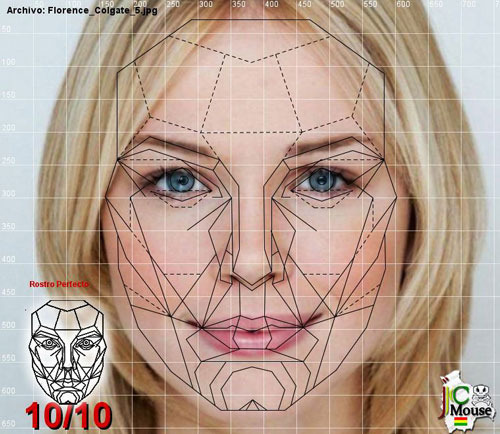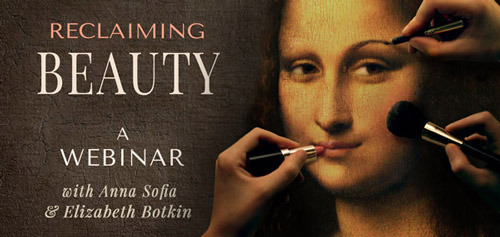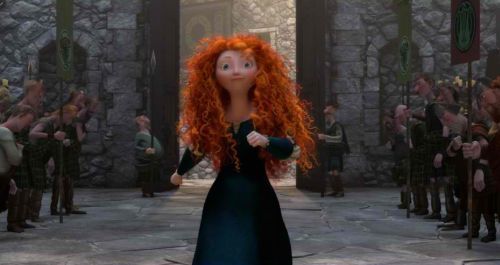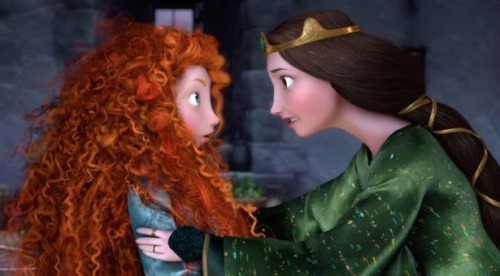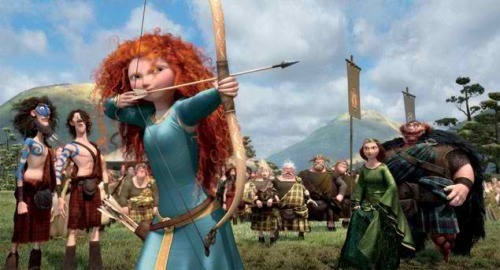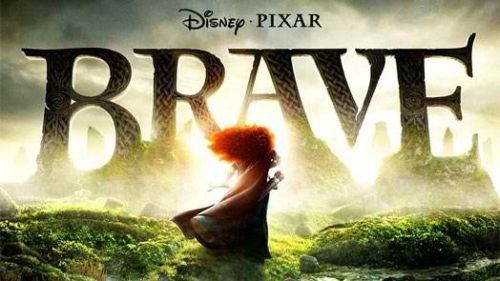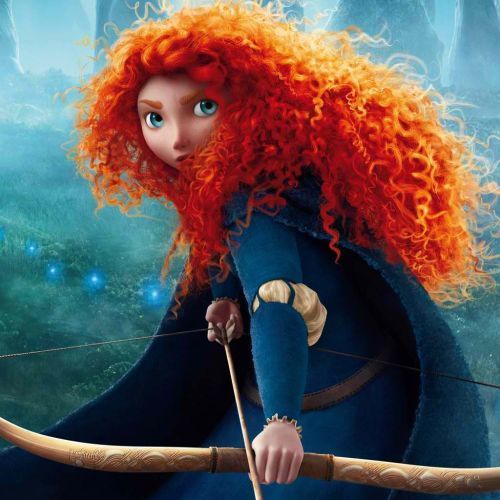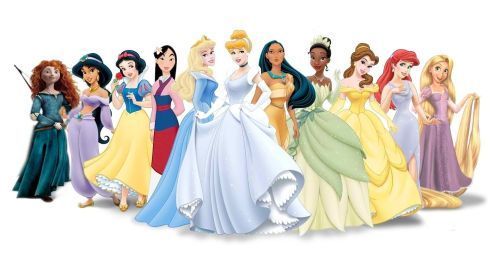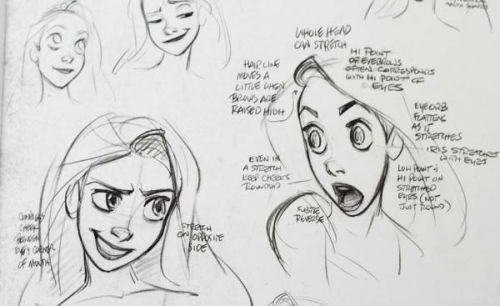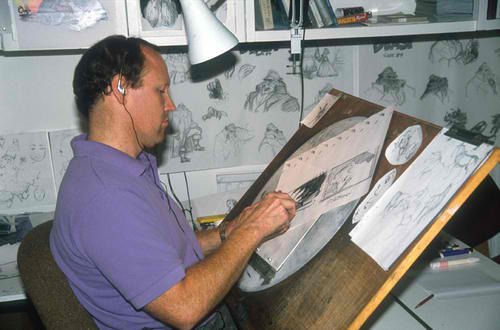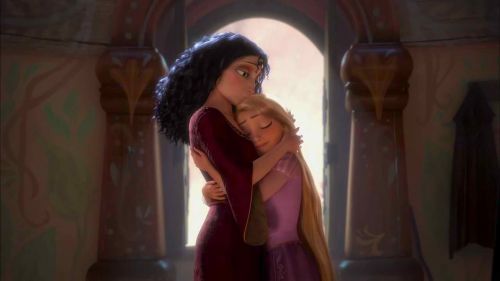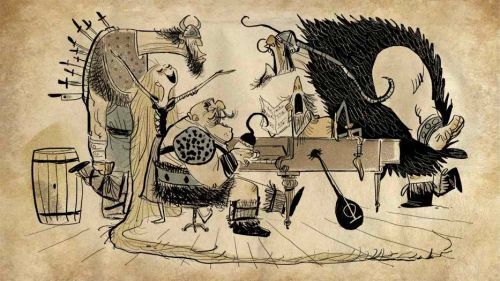Elizabeth Botkin's Blog, page 4
August 31, 2012
When Fairness is Unfair
Earlier this year, 18-year-old Florence Colgate was dubbed “Britain’s Most Beautiful Face,” not by the authority of beauty pageant judges, but by the authority of science and math. Miss Colgate’s face won out over 8,000 others on the basis of best match-up with a mathematically devised blueprint for perfect facial proportions based on the Golden Ratio.
Her “scientifically proven” prettiness sparked a huge debate that still rages all over the internet. Hundreds protested (for good reason) that the mystery of what makes one face more attractive than another can’t be solved with a formula. A much bigger concern, however, was over what that formula would do to the self-image of millions who can’t measure up to it: Women would feel like they were doomed to ugliness because their faces didn’t match the grid.
Most of us, of course, don’t need the aid of a scientific beauty-o-meter giving us an exact reading on our facial deficiencies to fear that our looks just aren’t “good enough.” If this is how we feel, we need to first take comfort in the fact that God has not given us one prescribed standard for physical perfection that we all have to match up to in order to be beautiful – a good thing, since He created us all to look very different. Also, His purpose for the diversity in our looks was not so that we could hold beauty contests. Beauty is not a game to win or lose, but something we all should be cultivating by the proper stewardship of our bodies to glorify Him. This is a good reminder for both the girls who invest inordinate amounts of time into their looks aiming to come out on top, and the girls who have given up trying because they feel they can’t compete.
When temped to resent the reality that some appear to be created a little more equal than others, we need to remember that God has a purpose for everything He does – the people He creates and also the way He creates them. God is not color- or beauty-blind, and His Word often uses objective terms like “ruddy,” “lovely to look at,” “without blemish” and also “mute, or deaf, or seeing, or blind” to describe His creations. But asking why bad hair happens to good people is as useless as the pot asking the potter why he was made a pot. We may never know why some were created with more proportioned features or better skin than others, but He does, and we can rejoice in the fact that we don’t have to be “equally” made to be “wonderfully and fearfully made.” (Psa. 139:14)
God has given Miss Colgate an objectively beautiful face – one that is much more symmetrical and aesthetically “perfect” than mine. Does that make her more beautiful? Does that make her better? Does that mean that God did not create my face equally well? These questions miss the point. What matters is that He gave us each the faces that pleased Him, and that we are both equally accountable to Him to steward the bodies He gave us and glorify Him in them.
August 21, 2012
Any Questions?
What have you always wanted to know about beauty and beautification? Whether your questions are philosophical or practical, we’d like to invite you to throw them our way as we prepare for the “Reclaiming Beauty” webinar. We’ll be answering questions live during the webinar, but hearing your biggest questions now will help us make sure our sessions will tackle are all the major topics our listeners want to hear about. Just email us at damselsATvisionarydaughtersDOTcom, and let us know what you’d like to hear us address. We’re looking forward to hearing from you!
August 8, 2012
Reclaiming Beauty: A Webinar
A New Look at How to Glorify God in Your Body
What is beauty?
Some say beauty fits in a size 0. Some say beauty comes in all shapes and sizes. Some say beauty is only skin deep. Some say beauty is only a quality of the heart. Some say beauty is truth. Some say beauty is a lie. Some say beauty is in the eye of the beholder. Some say beauty is as beauty does. Some say Elizabeth Taylor and Grace Kelly are beautiful. Some say everyone is beautiful. Some say beauty is divine. Some say beauty is corrupting.
From all this confusion, one idea emerges clearly: The world knows beauty matters. They talk a lot about it, write poetry and paint paintings celebrating it, and spend $160 billion dollars a year on it. But what’s equally clear is that they don’t know what it is. The question is: Do we?
Today’s young Christian women have grown up in the most image-obsessed generation in history, a generation that worships some of the most twisted ideals of beauty the world has ever seen. But whether we love them or hate them… they tend to shape our own perceptions of what beauty is. Some of us accept its ideals, and struggle to fit into its mold – others of us are repulsed by it, concluding that physical beauty itself is immodest, worldly, and unspiritual, and reject the realm of beautification completely. But when all we’ve ever seen is the counterfeit the world offers, we can sometimes forget that the world did not create beauty – God did. And though we all know the world has a lot to say about image, we sometimes don’t realize how much God does too.

It’s time to reclaim beauty. For thousands of years, believers, pagans, Gnostics, Humanists, Neo-Platonists, iconoclasts, and creators of culture have battled over this critical turf called “beauty.” Today, we have only to look at who designs the fashions, markets the beauty icons, rules the red carpet, adorns magazine covers, crowns Miss America, and designs clothes-and-makeup advertisements, to know who is currently holding the turf.
It’s time to take beauty back. When faced with an industry that runs on photoshop airbrushing, plastic surgery, starvation diets, grotesque catwalk styles, and billions of squandered dollars, our response can no longer be, “Beauty is not for us.” It’s time for our response to be, “Get your flag out of our ground.” It’s time for us to be a light in a culture that uses beauty as a weapon against God. It’s time for God’s ambassadors to make His principles – such as modesty and femininity – look as beautiful as they really are. It’s time for us to show the world: Ugliness is not beauty. Emaciation is not beauty. Androgyny is not beauty. Immodesty is not beauty. Unnatural distortion is not beauty. From Genesis to Revelation, God paints a different picture of the inner and outer beauty of a woman, and it’s time to show the world what it really looks like – one soul, one body, one face, one closet at a time.
A Webinar on Reclaiming Beauty
with Anna Sofia and Elizabeth Botkin
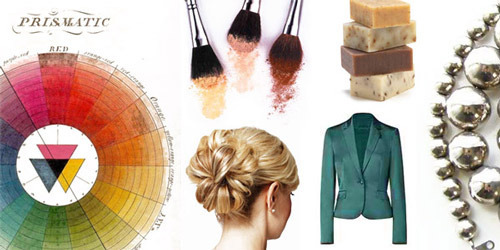
This fall, the authors of So Much More and It’s (Not That) Complicated and producers of “Return of the Daughters” are launching an intensely practical, image-rich, 7-week webinar on the meaning and cultivation of beauty from the inside out. Join sisters Anna Sofia and Elizabeth Botkin as they dive into Scripture for the answers to an issue of great importance and frustration to young women: personal image.
Is it OK to look pretty? Wear makeup and jewelry? Put effort into my clothes? Take care of my body? Do I have to care about how I look? Where can I find modest, classy clothes without spending a fortune? What should my attitude be toward the latest fashions? How do I figure out what looks good on me? What is appropriate to wear when? What in the world do I do with my hair?
“Reclaiming Beauty: A New Look at How to Glorify God in Your Body” will cover topics ranging from such practical issues as skincare, fitness, posture, voice, modesty, home-made beauty products, and color analysis… to subjects as penetrating as personal identity, insecurity, comparisons, worldliness, vanity, idolatry, our attitude toward others, and the state of our hearts before the Lord.
Discover:
What it means to represent the Lord as His ambassadors to the world
Where true beauty starts
What the Bible says about beautification and adornment
How we should respond to the world’s idea of beauty
The history and philosophy behind the most popular garments
The proper priority-level of beauty in the Christian’s life
The biblical relationship between the physical and the spiritual
What it means to be separate from the world
What we can learn from the beauty industry
What the beauty industry has gotten wrong
Get practical tips on:
Clothing yourself better for a lot less money
Making modesty and femininity look excellent instead of frumpy
Making off-the-rack clothes modest
Putting together great outfits with what you already had in your closet
Using makeup tastefully
Giving sloppy garments new life with minimum alterations
Cultivating taste and style
Getting out of a fashion rut
Creating a minimum-time-and-effort plan for looking nice every day
A Webinar That’s Not Just Skin Deep
Webinar sessions will run every Tuesday evening, 7-8 PM Central Time, from September 25 to November 13 (excluding October 30). The seven sessions include:
#1. What God Says About Beauty and Beautification
The Good, the Bad, and the Ugly
#2: What Style Is Your Heart, Mind, and Soul?
Pardon Me, Ma’am, But Your True Identity is Showing
#3. Getting Your Temple in Order
The Physical Foundations of Beauty
#4. Fearfully and Wonderfully Made
How to Work with the Build, Coloring, and Natural Beauty God Gave You
#5: Putting Things Together
Composition, Style, Occasion, Accessories
#6: Acquiring New Pieces (and Revitalizing Old Ones)
How to Get What You Need with Minimum Time, Money, and Fuss
#7: The Focal Point
Being a Good Steward of Your Face and Hair
The webinar registration fee is $44 per family. It is recommended for young women 12 and up, although parents are encouraged to listen with their daughters.
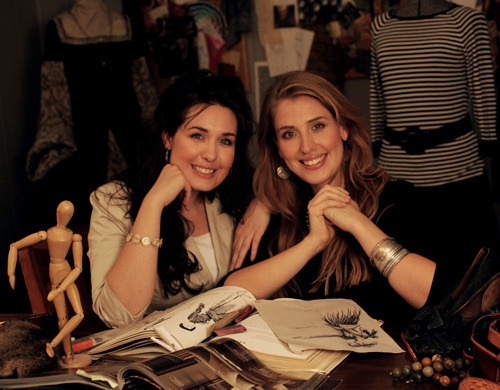
Starting out as aesthetic ascetics and determined frumps who were clueless about beauty and fashion, Anna Sofia and Elizabeth have had to build their understanding of beauty from the biblical foundation up (a work still in progress). They have no beauty certifications whatsoever, though they do have experience dressing for everything from speaking engagements to political events to concert harp performances to good old dirty work around the farm, and each get everything they need (clothes, shoes, hair care, accessories, cosmetics, etc.) for around $130 a year. They’re also interested in reclaiming the biblical family, film, art, music, and politics, and work with their family’s ministry, Western Conservatory of the Arts and Sciences.
August 1, 2012
30-40% Off Mom’s Audiobooks through Monday
July 26, 2012
Take the Movie Survey!
We’re gathering intel for a project our family is working on. Help us out and take two minutes to fill out this little survey.
Quizzes by

July 10, 2012
A Princess without a Prince
As we pointed out in our last post, Princess Merida is a pretty conventional tomboy. However, “Brave” does not present a conventional happily-ever-after: its Disney princess is the first ever to not get a prince. From the beginning to the end, she is all the man she needs. …Which is handy, because in her world, there aren’t any others she can turn to.
Merida may not have been a particularly brave new kind of princess, but we believe that “Brave” presented the newest and bravest fairytale world in Disney princess history. Castles and tiaras notwithstanding, this brave new world is actually a lot more like ours, for two reasons.
For one thing, this fairytale kingdom is not a medieval patriarchy: It’s a modern matriarchy. Despite whatever clichés and tropes you might have been expecting (as we were), this is not actually another story about a progressive, free-spirited heroine kicking against old fogey men’s ideas about woman’s role. It’s a story of 3rd wave feminism kicking against 2nd wave feminism: the daughter’s rebellious, no-cause-but-myself girl-power versus her mother’s more self-sacrificing, cause-driven, authoritative woman-power; a girl who would rather be a bohemian than undergo training to be an educated, powerful future ruler.
This film is about “contemporary, modern women,” said co-director Brenda Chapman, pinpointing what few critics picked up on, “a contemporary kind of family set in an old world fairy tale.” Producer Katherine Sarafian points out, “Both the female leads are headstrong women. The princess is rebellious and yearns for things to change and the Queen is a working mother, a professional running the kingdom.”
Merida is supposed to be learning how to run the kingdom, from the only person in the kingdom who can.
The second reason is the realistic outgrowth of the first. True to a real feminist society, there are no real men in this movie.
Merida’s father and the rest of the clan leaders are rowdy, buffoonish children who have to be shushed, scolded, and dragged around by the ears by the queen. The suitors are all such that Merida’s clearly better off without one. And that makes her the first Disney princess who doesn’t want a prince, and who doesn’t get one.
This point got half-hearted “yay”s from critics trying to be consistently supportive of feminism’s a-woman-needs-a-man-like-a-fish-needs-a-bicycle ideals. “You’ll be relieved after you see her choices for prince,” wrote one reviewer. “However, I felt something was missing when she became the first independent princess……and, for the life of me, I can’t believe I feel that way.” We can. And there’s a world full of young women who are not excited to find that the feminist landscape they’ve inherited means they get to make the same choice Merida did.
The catalyst of the movie comes when Merida’s mother tells her that, for political reasons, her three horrifying suitor options are IT and she needs to choose one of them NOW. The situation explodes into a catfight that eventually ends happily, with the two feminist views reconciling, the mother happily continuing to rule the realm (essentially) alone, and the daughter happily pursuing single independence. It’s the kind of “happy” ending that a lot of women would dutifully applaud… but few truly want to live.
Unfortunately, it’s a premise a lot of girls watching feel like they themselves have to look forward to – no men leading, little fatherly guidance, no suitable suitors, and people still trying to pressure them into getting married faster.
We might all see Merida’s reactions to these crises as childish (which they were), but then we’re left with the question, “What would we do in her shoes?” One of the great things about movies is how they can give us practice analyzing scenarios we might have to deal with ourselves one day. So how should we respond if, for instance, we feel like: “I’m being pressured to marry someone I don’t like!”?
Hints from well-meaning friends, probing questions from relatives, introductions from prospective in-laws, or nudges from parents could all be scary if any of these people had the biblical prerogative to force you into marriage against your will, but guess what? They don’t.
Theologians believe Scripture sets a precedent for the daughter’s consent being necessary for marriage (Gen. 24:57,58). We also see that the very essence of a covenant is that there are two parties entering into it of their own volition, and the covenant has to be between the two parties who have to keep it (the parents, siblings, or dog of one involved party can’t enter into it for them.) Even if you were told to take your pick of three slobbering buffoons (as Merida was), you could still , on biblical grounds, choose none of them. Remember, doing the right thing is always one of your options, even if it didn’t seem to be on the ballot. (Hint: Resisting by way of a magic potion, a temper tantrum, or a plan to publicly humiliate parents and suitors alike would not count as “the right thing.”)
Next, how should a girl respond to the fear that “None of the young men my age are mature/godly/serious enough to get married!”?
“Should I a) keep sitting around waiting for my prince to come (Old Disney Princess style), or b) decide that I don’t need a man anyway (New Disney Princess style)?”
How about neither of the above?
“Brave” critics were delighted that Merida made things happen for herself instead of waiting around for her prince to show up, and we had mixed feelings about that. Sitting around waiting for our ship to come in, our prince to come, or some outside force to get our lives started for us (sometimes called “Cinderella Syndrome”) should have no place in biblical womanhood (or, we would argue, princess movies). But neither should defiant, misandristic autonomy – “Yeah! Who needs men anyway?!”
We need to use this time of life actively, not passively; to bless and serve others rather than to complain and freeload; to be loving, edifying sisters to those fellows and not cold, critical harpies. After all, your “ever after” doesn’t start after you get married – it started the day you were born. Whether it’s happy or not is up to you.
But how should we respond to the fear, “There are no real men leading in the world!”?
As mentioned, this film has several elements of grim reality to it, but one of the most profoundly truthful is this: Whenever you see crude boy-men like King Fergus and the clansmen, you’re going to see women like Queen Elinor and Princess Merida right next to them – dragging them around by the ears, doing all their talking for them, beating them at their own game, making their decisions for them, treating them like four-year-olds, and scolding them when they act like males.
“Brave” is a very accurate snapshot of the symbiotic relationship between feminists and perpetual frat-boys, and why it’s in both of their “best” (and worst) interests to keep the cycle going. For as long as the men keep playing, the women can keep running things… and as long as the women keep running things, the men can keep playing.
This might sound hopeless, but should actually give us hope – and the answer to the problem of “no” real men leading in the world. When there aren’t many real men in the world, that means that there aren’t many real women in the world either. It means that most of us have been, in small ways or large, part of the problem. And it means we can now be part of the solution. We can become the women that the men around us need us to be – not the men we wish they were.
And then maybe we can help forge a happier ever after for everyone.
July 1, 2012
Can We Have a Braver Princess, Please?
Twenty years ago, our mother walked down the Walmart Pink Isle, past all the Disney-heroine Barbies, Disney-movie-inspired vanity playsets, sequined polyester fish-tail skirts with seashells, and itchy yellow off-shoulder Belle dresses, and decided, “Not for my daughters.”
We were 4 and 6, and like most little girls, were each on our quest for the holy grail of femininity, the all-inspiring vision of who to be when we grew up. Like many mothers, Mom realized that the entire panoply of Disney “woman” options, from Snow White to Ariel and Belle, were not it. Unlike many mothers, she ditched the entire franchise, tossed Barbie, and made us beautiful cloth dolls based on our intrepid Swedish-immigrant great-grandmothers, and taught us how to make clothes for them ourselves.
Seven years ago, Disney-Pixar also saw a problem with their insipid line of princesses. “I love fairy tales, but I am tired of the message of waiting around for your prince to show up and you’ll live happily ever after,” said Brenda Chapman, writer and co-director of Disney-Pixar’s newest movie. “[M]y goal was to offer up a different kind of princess — a stronger princess that both mothers and daughters could relate to, so mothers wouldn’t be pulling their hair out when their little girls were trying to dress or act like this princess. Instead they’d be like, ‘Yeah, you go girl!’”
So last week they unveiled…
…Princess Merida of “Brave,” a fiery-haired, fiery-tempered, arrow-shooting, teenaged tomboy, who doesn’t want to get married, doesn’t want to mind her manners, and hates being a princess. She takes after her boorish warrior father instead of her polished power-woman mother, who tries in vain to shape her into a responsible and proper future queen. Merida’s head-butting with her mother turns into all-out war when she’s faced with an forced marriage to her choice of three slobbering buffoons in order to keep the kingdom’s peace.
To make a long and rather weak story short (you can read our brother Isaac’s analysis of it here and here), Merida strikes a spiteful and reckless bargain with a witch to fix her mother-problems, which endangers her mother’s life and causes a national crisis. She then has to fix her mistake, which involves reconciling with her mother, and the two then overrule the kingdom’s tradition together in perfect, heartwarming mother-daughter harmony.
This spunky new princess is supposedly breaking all kinds of stereotypes, and presenting a brave new kind of role model for America’s daughters. But is she really?
Let’s first ask why this even matters, as some might complain, “Merida is just pretend,” “’Brave’ is just a movie,” or “It’s just entertainment.” Disney knows better. Interviews with any of the writers, directors, or producer make it clear that their goal was not to entertain girls. They wanted to inspire them. Nor did they ever mean for “Brave” to be just a movie. “Brave” is an advertisement. It’s trying to sell something, and we’re not just talking about billions of dollars’ worth of Merida merchandise. What it’s offering is a new product in Disney’s catalog of personalities, attitudes, and identities. If you didn’t want to be the singing scullerymaid, the vapid plot-vehicle, the defiant teenaged mermaid, or the daydreaming bookworm — now you can be the Amazonian spitfire!
Analyzing Merida matters because she was designed specifically to be a model for others to follow, by people who know girls will. So what did they put into the package, and how brave is it really? Let’s examine Merida’s example.
• Whining for time off from responsibility, rules, expectations, and having to be a role model: not all that brave.
• Resisting self-discipline, education, and training for the future in favor of outdoorsy hobbies: not all that brave.
• Defying parents (while freeloading off of them): not all that brave.
• Refusing to follow basic rules of manners: not all that brave.
• “Making things happen” in your life (instead of sitting around) by causing mayhem in others’: not all that brave.
• Fighting for your own way over anything else: not all that brave.
• Confessing and actually repenting for her catastrophic mistake at the end: very brave.
• Realizing that her mother was a person too, who could be terribly hurt by her daughter’s selfishness: extremely brave, for a kids’ movie about parent-child conflict.
• Refusing to marry any of her suitors: Sorry, we’re saving our thoughts on this one for the next post.
Yes, there were some points to her example that we were happy to see, but honestly, doing no more than owning up to and fixing the mistakes she herself made hardly makes her a hero. We’ve seen little toasters braver than this.
Nor does her example rise above stereotypes of femininity – it just creates one new one (which isn’t even that new). Not only is Merida not as brave as a toaster; she can’t even make toast. That is to say, she’s yet another heroine with excellent motor skills in the woods but who’s totally incompetent indoors. She can sit the trot, but not sit up straight in her chair at royal functions (nor walk without lumbering, eat without gobbling, and so forth.) How are all these socially and domestically challenged heroines who swing swords but fumble with teapots broadening society’s expectations for what a girl can do? How is this a more empowering womanhood?
Full-orbed biblical womanhood should involve more than pouring tea or singing with forest creatures, of course – but should also involve more than spending all day shooting arrows into nothing (which is maybe why our mother used to buy us tea sets and bows and arrows.) The helpless someday-my-prince-will-come vision and the autonomous barbaric tomboy vision are both narrow, unhealthy, and most of all, unbiblical. In other words, “Brave” can just join the roundup of usual suspects for creating unhealthy stereotypes for girls, along with Queen Victoria, Aristotle, June Cleaver, Rousseau, Rosie the Riveter, and Barbie. And like our mother, we can just say “no” to all of them, because they’re all inventions of man and they’re all wrong.
There is a vision out there that is bigger, better, and braver, and it is because it’s God’s.
It requires a lot more than being the kind of “heroine” that “girls [can] look at and not feel inadequate” (the goal of Merida’s creator Brenda Chapman), because it was designed by a God Who wants us to become more than we are. We all start out immature, foolish, weak, clumsy, and yes, inadequate, but He calls us as women to move on and develop courage, compassion, wisdom, knowledge, strength, dignity, discretion, diligence, gentleness, resourcefulness, entrepreneurship, generosity, submission to authority, and sacrifice for others.
The Bible tells tales of women who were intelligent, brave, beautiful, and who acted like women instead of little barbarians. Of women who didn’t fit inside personality-type clichés like “the lovable klutz,” “the beautiful bimbo,” “the steely battle-ax,” “the mealy-mouthed Mary Sue,” “the defiant teen,” “the snarky geek,” or “the tomboyish wildcat.” The godly deeds of these heroines never included teen rebellion, ruling over men, or “following their hearts,” though they did include a lot of things that would have shocked Queen Victoria.
Of course, our culture will keep trying to give us new “role models” to expand our catalog of options, but the spread is still too small, and always will be until the Bible becomes the basis for a new vision of femininity.
Now, as soon as Disney gives us a princess who can put tent pegs through enemy generals’ heads, hurl millstones at invading armies, defy pharaohs, shelter spies, rebuild walls, work in the fields, water camels, and risk her life for her people, as well as sew and cook and raise a family[1] — then we’ll call that a brave princess.
———
(Respectively, Jdg. 4:24, Jdg. 9:53, Ex. 1:15-21, Josh. 2, Neh. 3:12, Ruth 2, Gen. 24:19,20, Esth. 4,5, Proverbs 31, Acts 9:39, Gen. 18:6, Tit. 2:4, 1 Tim. 5:9,10, and Prov. 31:27.)
June 11, 2012
Up to 50% Off Tools for Fathers
May 3, 2012
April 19, 2012
Our Response to Rapunzel
Dear Rapunzel,
Thank you for your email. We happen to already be familiar with your story as presented in “Tangled,” and even know a little more about your backstory than you do, and so we do have some thoughts for you.
We will be unusually blunt, because we know you are not a real person with feelings; you are the carefully written, cast, voiced, sketched, sculpted, scanned, painted, rigged, animated, rendered, and composited brainchild of John Lasseter, Glen Keane, and the Disney scriptwriting committee. We’re talking to you, polygons.
And not only were you meticulously handcrafted by others: Your entire universe was built around you, detail by detail, by these same imagineers. Your particular situation, down to Flynn’s serendipitous appearance in your window – your moral dilemmas, down to your conflicts with your mother – the characters you ran into, down to the last pub thug – didn’t just happen, but were deliberated over by a bunch of businessmen for approximately ten years. Everything about your world, including the ethical system by which it operates, came out of somebody’s head.
But here you are, in the middle of it, and you need advice. Let’s get down to helping you out! We would like to propose the following course of action for you:
Kill your mother with her own dagger (for poetic justice), run away from the tower once and for all, reunite with Flynn Rider (and propose to him – why not?), rally the thugs to your side, storm the castle together, throw out the authorities that were trying to imprison Flynn (doesn’t that make them the villains?), and establish yourselves as the ruling elite, where your word can be law, now not only for you, but for everyone.
No, of course that’s not the right answer. But why not?
Some might say that since your universe is a fantasy universe, God’s ethical system does not apply. But if His moral standard doesn’t have jurisdiction over this film – if, since this film isn’t a “Christian” film, we shouldn’t require it to line up with the Bible – then who could dare say bumping your mother out of the way would be wrong? Who’s to say any other solution would be morally better? Are we admitting that there is some overarching standard after all?
We’ve got good news for you: You, Rapunzel, imaginary creature though you are, are not ultimately under the lordship of Disney Studios, but of Christ. 2 Corinthians 10:5 commands all men to “take every thought captive to the obedience of Christ” – which means every imagination, every script page, and every film frame. Christ demands that every man’s mind and the stuff in it bow the knee, and that would include you. And His moral system – His law – is still the standard by which your moral system must be measured. In other words, stabbing your mother would be wrong, not because it’s not the sort of thing a nice girl with a dream would do, not because it would be politically incorrect, not because it would disturb children – but because it breaks one of His commandments (Ex. 20:13). And that’s why, even though you’re a fairy tale creature, we’re going to respond to you as though you were a real person.
What makes advising you tricky is that the brains who crafted your universe and situation never presented you with a good option. The film offered you two choices at the beginning: 1. Rot your useless life away in the tower with the world’s most detestable mother; or, 2. Defy your mother and run away from home with a thief. Your only visible choices now are: 1. Rot your useless life away in the tower with the world’s most detestable mother; or, 2. Follow your feelings, denounce your mother as a kidnapping imposter with no evidence, and leave again. Yes, it does occasionally seem that the only options life presents are bad ones, but in reality, doing right is always an option. Film has the power to create dishonest moral scenarios, forcing its characters to play a version of the lifeboat game (Who will you throw overboard, passenger A or passenger B?) and never offering a third option. And by making your option A look unspeakable, while making your option B look irresistible, “Tangled” draws us in so deeply that by the time your first moral dilemma comes around, we’re rooting for you to do (what we would normally call) the wrong thing.
So what is the right (biblical) thing for you to do, now? Here are a few (serious) suggestions:
1. Check the facts regarding your identity.
Feelings, hunches, and childhood drawings are a bad guide (and insufficient evidence), especially in such high-stake situations. There are ways to figure out who you are. We, the audience, of course know that your Mother is actually an evil kidnapper and the villain of your story; but you, the protagonist, currently have about as much reason to suspect this as every girl in the audience does her own parents.
If you were wrong, and she turns out to have been your biological mother all along:
2. Apologize sincerely for disobeying, deceiving, and defying her.
Some protest that you were justified in breaking the 5th commandment because she wasn’t really your mother, but let’s be honest: You didn’t leave because you knew that. You didn’t leave because you knew your mother’s command was biblically unlawful. You didn’t leave because you thought it would be wrong to stay and submit to the unbiblical tyranny of a kidnapping sorceress. You left because there was something you really wanted to do, the authority over you forbade it, and you decided to do what you wanted to do it anyway. You actually believed, and said, that it would be wrong for you to go. In your mind, you were as guilty of rebellion as the girl whose parents forbid her to go to a wild party and who sneaks out to go anyway: You left because you didn’t care.
We’re truly sorry that the filmmakers gave you such a loathsome creature as a mother. But if it’s wrong for her to be a law unto herself, you need to hold yourself to the same standard. “For rebellion is as the sin of witchcraft, and stubbornness is as iniquity and idolatry.” (1 Sam. 15:23)
3. Biblically examine the legitimacy of her commands.
Even if she is your biological mother, however, that doesn’t mean you have a duty of unconditional submission to her whims. “The requirement of unquestioning obedience by any human authority is a sin and defiles the very intent of God’s Word,” writes R.J. Rushdoony. “The unquestioning obedience which Scripture requires is only to God, never to kings, rulers, employers, husbands, or parents. To render unquestioning obedience is a sin.”
There comes a time when, in the words of our founders, “Resistance to tyrants is obedience to God!” What you need to ask yourself is: Is your mother forcing you to sin, or is she forbidding you to do something God has commanded? In either case, you must disobey. (By the way, God didn’t command you to go see the floating lights.) And if she is physically abusing you or endangering your life, you have a duty to not be an accomplice to her crimes. You need to get out of there. Thankfully, you are fit and resourceful, as well as handy with your lasso hair, and you’ve gotten out of tougher scrapes. We’ll root for you.
4. Appeal to her regarding her sins against you in the spirit of Matthew 18:15:
“If your brother sins against you, go and tell him his fault, between you and him alone. If he listens to you, you have gained your brother.” If she refuses to be reasonable, the biblical answer is not to simply walk away from her forever. Verse 16 continues, “But if he does not listen, take one or two others along with you, that every charge may be established by the evidence of two or three witnesses.” Use your resourcefulness to bring in some authorities to handle the situation – and, yes, submit yourself to them. Unaccountable autonomy is an alternative Scripture never offers anyone, man, woman, or child.
However… If she is not your biological mother, but instead a kidnapper:
2. Employ your resourcefulness to go to the authorities.
God condemned kidnapping as seriously as murder (Ex. 21:16, Deut. 24:7), and she needs to be brought to justice. This is bigger than you and your feelings; she has sinned against God and your parents as well as you, and right must be done.
However, if justice is really your concern, then…
3….You also need to report the most wanted thief in the kingdom, who has also stolen precious items (the tiara) from your parents.
Flynn has also sinned against God and your parents, and again, this is bigger than you and your feelings. Biblically, he wouldn’t be hung or have his hands cut off, but there are consequences for stealing (Ex. 22:1-4, Lev. 6:1-7, Prov. 6:30,31).
This is not, of course, to assume that Flynn couldn’t repent of stealing. If he did, though, he would certainly go further than saying he’s sorry and never doing it again: He would make restitution to everyone he robbed, as many times over as biblically required. It would be nice if repenting meant not having to suffer the consequences, but God is a God of justice Who requires that things be made right. That He is also a God of mercy means that He does give second chances to those who repent, confess, make things right, go their way, and sin no more… and we can too.
4. Don’t embrace thugs just because they’re nice to you.
This film for young girls contained an interesting message: That everything your mother taught you was wrong. One interesting example was your mother’s caution that the world contained dangerous men. No one would dispute this fact in the real world, but it was a point the film pulled some tricky stunts to prove wrong. At the end of the day, the openly brutal and violent thugs were proven to be harmless to pretty blond girls. The ones shown to be the real villains were parents.
As regards both Flynn and the pub thugs – of course they have souls! But it’s no amazing discovery that the more villainous elements of society also have feelings, dreams, even artistic impulses. Hitler was sensitive and introspective, wrote poetry, loved music and art, collected artifacts, had a dream (a big one), and liked pretty blonde girls. A penchant for collecting ceramic unicorns doesn’t make a criminal innocent. It also doesn’t prove that your mother was wrong about the world – even if she was wrong about how people should respond to it (i.e. hiding in a tower). Unfortunately, neither you nor she figured out what it means to be in the world but not of the world, or the right way to be a light in the darkness.
5. If you are found to be the Lost Princess, step up to the role of royal daughter, and all that that involves.
As the daughter of such obviously wonderful parents, you will obviously not have any excuses for running off to attend events they forbid, or becoming romantically entangled with young men they disapprove of. (If you never had an “authority problem” to begin with, this shouldn’t be a problem for you.) As a princess, however, your new responsibilities go even further than this. As soon as you put on that tiara, you have to stop being the main character of your story and let your subjects take that place. Instead of being slave to a tyrannical mother’s whims, you must now be a slave to duty and the needs of your people. Dancing with the peasants and drawing pictures with them on the sidewalks will not be enough. Whatever your feelings may be, you have to set an example of law-upholding conduct to your people. Whatever your (or others’) dreams may be, you have to impartially uphold justice. Whatever your diplomatic power may be, your word cannot be law.
And Rapunzel, we’re afraid this means that you are going to have to become a different kind of girl.
Your example, unfortunately, can no longer be what it has been throughout the whole movie. You may be one of Disney’s most appealing recent characters, and you may have done some admirable things (such as try to sacrifice your life for Flynn). But your character is nonetheless an extremely dangerous one for girls to relate to.
Why? Because although your situation is so different from ours (our parents generally are our biological parents, and they generally aren’t locking us up in towers), and your universe operates so differently from ours (none of us have magic hair), your struggles, feelings, and questions are just the same. “Tangled” tackles the biggest issues in a young woman’s life: relationships with parents, attitudes toward authority, relationships with young men, the outside world, the use of our time, and our bigger purpose in life. It raises the questions every young woman is asking. Then it gives the exact wrong answers.
When a girl sits down to watch your movie, she is about to vicariously live your story with you, feelings, attitudes, romance, temptations and all. She is “you” for the next 90 minutes. And what is she learning along with you? That our parents are wrong about everything. That all will turn out well if we just follow our hearts. That no man is so bad he wouldn’t “turn it all around” just for us. Through you, we tangibly feel the temptation to reject our parents’ instruction, keep secrets from them, and defy them – and then, through you, we give in to temptation. Through you, we feel pangs of guilt, shame, and fear of hurting people we love – and then, through you, we learn to stuff those feelings down and ignore them. Through you, we learn: What I want is more important than what I believe is right.
And at the end of your story, everything turns out beautifully to prove that when you chose to follow your heart rather than your conscience, you made the right moral decision.
Some might still point out that, in order for your story to work out, you had to. True, but next time any of us want to “pull a Rapunzel,” and do something we know is wrong to make things right, let’s remember that our stories are not Disney movies; that our world is not populated with Disney characters; that we are not Disney heroines whose universes revolve around us; and that our Creator has rigged things to work differently. We’ve had to watch girl after girl after girl make the same decisions you did, give in to temptation the way you did, sear her conscience the way you did, and run off with scoundrels like the one you did. Unlike you, they discovered that the real world revolves around a God Who isn’t them, and that He has built into His world rewards for sin that don’t generally include “Happily Ever After.”
We admit, we don’t typically write emails to CG models representing imaginary people. The reason we’re writing to you is because for many girls, you’re much more than that. Though you’re just a figment of someone’s imagination, a mere idea – ideas are real. And that’s why “Tangled” matters. After all, girls don’t really love “Tangled” because it’s “just a movie.” The reason we love it isn’t because we just can’t, practically or morally, put ourselves in Rapunzel’s shoes. We don’t love it because it’s a totally un-relatable fantasy that has no connection to our lives. If we love it, it’s because it does strike a chord with our lives. We laugh and cry along with Rapunzel’s joys and woes because we can relate to her. And when we passionately, emotionally tell critics to leave it alone because “It’s just a movie!” we are proving that down inside our hearts, it’s much more than that.
You may be just an idea, an imagination, a thought – but thoughts (not people) are exactly what we’re commanded to take captive (2 Cor. 10:5). “Arguments and every lofty opinion raised against the knowledge of God” are exactly what we are supposed to destroy (v. 5). Strongholds are exactly what we are supposed to tear down (v. 4).
Rapunzel, Rapunzel, we’re not condemning you.
We’re just trying to take you captive.
Love,
Anna Sofia and Elizabeth
Elizabeth Botkin's Blog
- Elizabeth Botkin's profile
- 34 followers


